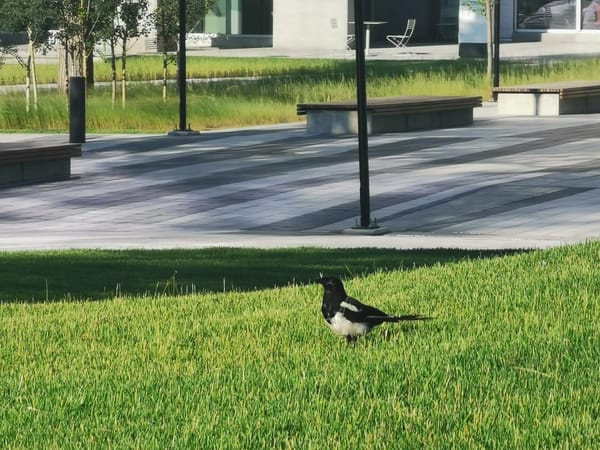Our hope is built on nothing less

“What is the meaning of hope in a period of history when things are getting worse?”
This is a question the Canadian theologian Gregory Baum asked as he watched in helpless horror as the first Gulf War began in the early 90’s. Ever an Augustinian, Baum saw this war as deeply unjust, a “technically perfect mass destruction of human life” which “sealed in blood the orientation of the new international order, the globalized economic system protected by military power, that increasingly excludes masses of the population from the means of decent human survival.”
For Baum, the first Gulf War was more than a symbol of American imperialism, it was a sign of the times, a sign that broke apart any shallow optimism—Christian or secular—that the world was moving in the right direction. From the Christian vantage point, it challenged the simplicity of resurrection narratives that would turn the empty tomb of Jesus into an easy assurance that everything was going to be alright. It wasn’t: tens of thousands of people were dead, and the global economic and military order that sanctioned their murder showed no signs of slowing down. And so, Baum decided to reread Augustine’s City of God to help answer his question: what is the meaning of hope in evil times?
Living during the fall of the Roman Empire, Augustine also experienced the world as a place that was getting worse. The City of God was his theological interpretation of why the Roman Empire was falling, and how and where faithful Christians were to see themselves in the midst of that fall. Baum helpfully distills Augustine’s 1000 page argument:
Augustine introduced the famous distinction between ‘the city of man’ and ‘the city of God,’ two cities generated by two different kinds of love, the love of self and the love of God. In the city of man, ‘the proud city,’ people sought their own advantage, their pleasures and their personal triumphs, while in the city of God, ‘the humble city,’ people were friends, helping one another, grateful to God, the giver of all good things.
Critically, Baum notes that Augustine is not suggesting here that the city of God is limited to, or even necessarily includes the church. As in Jesus’ parable of the wheat and the tares in Matthew 13:24-30, the church is a mixed field of peoples, not all of whom are motivated by the love of God. Indeed, even within a single person we find ourselves a mixed field of loves—we are all shot through by both sin and grace.
Augustine’s insight was to see that the city of God, the humble city, was not a fixed community or time, but rather a context, a place that would arise where persons and peoples moved away from the disordereding self-love of the proud city, and instead joined their neighbors in actively building the humble city. Our hope then is not bound up in the dominant social-political order. The world might be getting worse, the empire might fall and be replaced by an even crueler one, but our hope is not found in the success or failure of empires but rather in a way of life made possible for us through the triune God, revealed to us by Jesus.
As Baum puts it, despite the empire’s successes or failures,
“God’s grace alive in people’s hearts, prompts them to forget themselves, share with their neighbours, and construct communities based on mutual respect and solidarity. The city of God is thus built in the midst of an imperial civilization.”
Baum concludes,
“If today’s world is really Mr. Bush’s new ‘international order,’ then—following the logic of St. Augustine—being socially engaged, buoyed up by the gift of hope, means to build networks of resistance, create communities of friendship and service, and promote a counter-culture of social solidarity.”
Like Baum and Augustine, I do not think everything is going to be alright. Ça ne va pas bien aller. The global pandemic revealed deep divisions that plague us [still], and it is a drop in the bucket compared to the crises we now face on this planet as creatures of the triune God. Mr. Bush’s ‘international order,’ now well established, is devolving into an even crueler one, where tech-barons animated by a capitalist and accelerationist philosophy are attempting to supersede the material world with a virtual one created in their own image. Meanwhile, everyday, another of our fellow creatures vanishes forever. Creation is groaning for redemption, and we are busy building spaceships to escape it.
What is the meaning of hope for us, in a period of history when things are getting worse? Let’s be honest: as a church we are left on the other side of the pandemic with weakened numbers, finances, and morale—and in the very near future, many of our congregations will cease to exist. More condemning still, many of the neighbourhoods in which these churches vanish will fail to notice. We are standing at the site of the empty tomb, and rather than celebrating, we are prudently afraid.
In the midst of this fear, I think Baum points us towards a meaningful hope. The good news of Easter is not that all shall be well, it is rather that despite the social, economic, political, and ecological illnesses we see around us, despite the real limitations of our moral agency, we may yet join one another in building networks of resistance, creating communities of friendship and service, and promoting counter-cultures of ecological and social solidarity.
We might fail, but that doesn’t really matter. Easter is not a story about our success. It’s a story about God’s creative capacity to build the humble city with and through us, despite our failures. In evil times, our hope is built on nothing less.
An earlier version of this article was published in the Spring 2022 edition of the Quebec Diocesan Gazette. I have altered it very little, which is actually pretty frightening, because asking "What is the meaning of hope in a period of history when things are getting worse?" seems an even more pressing question in 2025...



